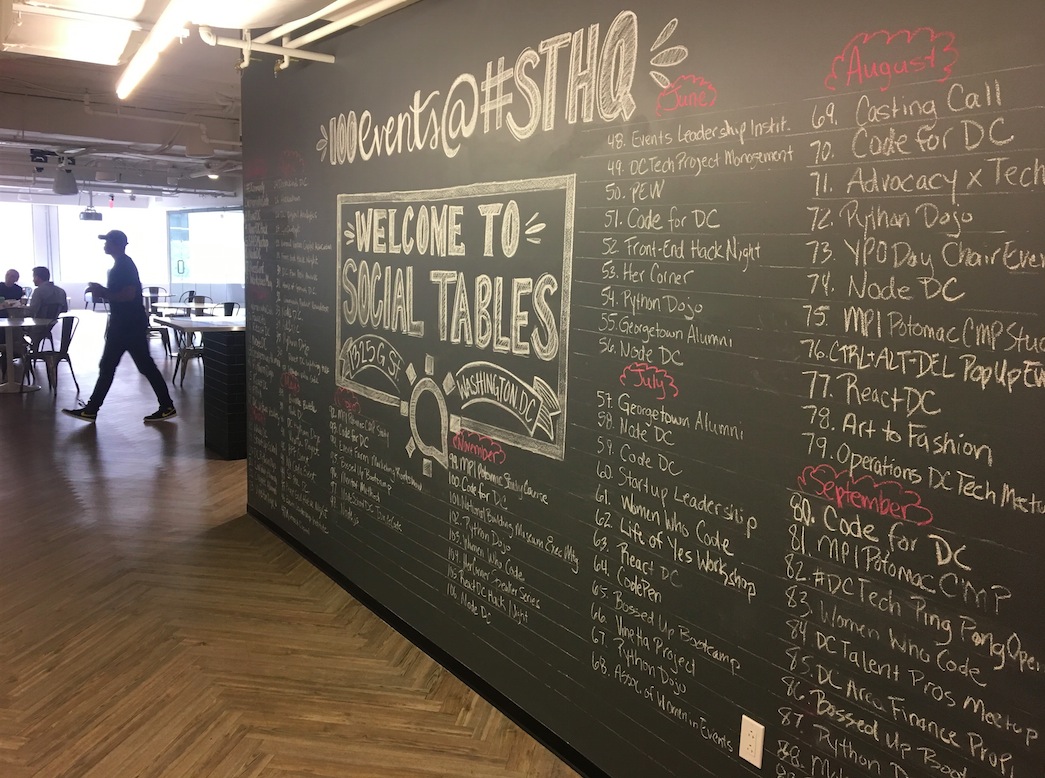With near ritualistic regularity, a new, big, household name tech company has started in D.C. just about every decade.
Today’s DMV tech sector was built around AOL, which launched in the mid-1980s, became a dominant force in the 1990s and remains a once-in-a-generation kind of digital media company. In 1997, what became learning platform category creator Blackboard first launched, and a decade later the origins of LivingSocial first spunoff as an app creator that would later evolve into a major player in the once frothy daily deals sector. (That was the same year when suburban WeddingWire launched.)
Years from now, what D.C. startup today might be the fourth wave in that tradition? (Technical.ly made some bets in January with our inaugural RealLIST, though there are more established options, like 125-person event management company SocialTables.
If one (or more) company keeps the record alive, most suspect it will be done with the help of the legacy of those companies.
“You’re always building with the help of those that came before you,” said Amelia Friedman, the energetic cofounder and COO of Hatch, a nine-person startup that wants you to build apps on top of their platform.
Some of that’s plainly obvious. Just look around at the current crop of D.C.’s buzzy tech offerings.
Susan Tynan, the founder of Framebridge, and Galley cofounders Alan Clifford and Ian Costello, were all LivingSocial veterans. The first non-founding employee of Goodshuffle, the event inventory management tool, is Karen Gordon, herself a former LivingSocial employee. (Other Socialers have launched companies, like Borrowing Magnolia and Chime (formerly Choir.co), as the Washington Post reported, though they all haven’t blossomed.)
“Those kinds of companies are magnets and great places to learn,” said Gordon at a recent Technical.ly stakeholder meeting. “Then we take those lessons elsewhere.”
Look at Shana Glenzer, who became a #dctech community anchor after rising through the ranks at Blackboard. She’s been involved in other tech companies hopeful to become the region’s next big consumer-facing wave. Now she’s CMO at CrowdSkout, a kind of CRM for nonprofits, advocacy groups and campaigns.
“You see the fingerprints of those companies all over,” said Glenzer. AOL founder Steve Case has become a national investment trendsetter, while his Revolution Ventures has fueled other big D.C. hopefuls, notably incubator network 1776. No surprise that iconic venture firm NEA had its East Coast offices in the region because of early AOL successes, reminded Friedman.
Ryan Ross is the program director at the Halcyon Incubator, where more than a third of the social good companies he supports are solidly in tech and many more need technical talent. He watches closely the needs of his companies. At a recent DC Startup Week panel, he spoke about how necessary big, high-growth companies are for newer, younger firms.
“It’s not just that [DC doesn’t] have enough tech talent, it’s really that we don’t have enough people experienced enough to be CTOs,” he said. The region’s industry focus in government contracting maintains many overpaid and “clearance-dependent” professionals, he said. But if the value of these past companies are so well-known, is there any worth still talking about it? “You can’t overstate the importance” of other sources of ideas and people, he said.
Ross and the rest say a community can’t forget the need for maintaining and growing upon that tradition.
“Big product companies bring talent and dollars that are less risk averse and a lot more,” said Hatch COO Friedman. “We can’t do what we do today without those that came before.”







